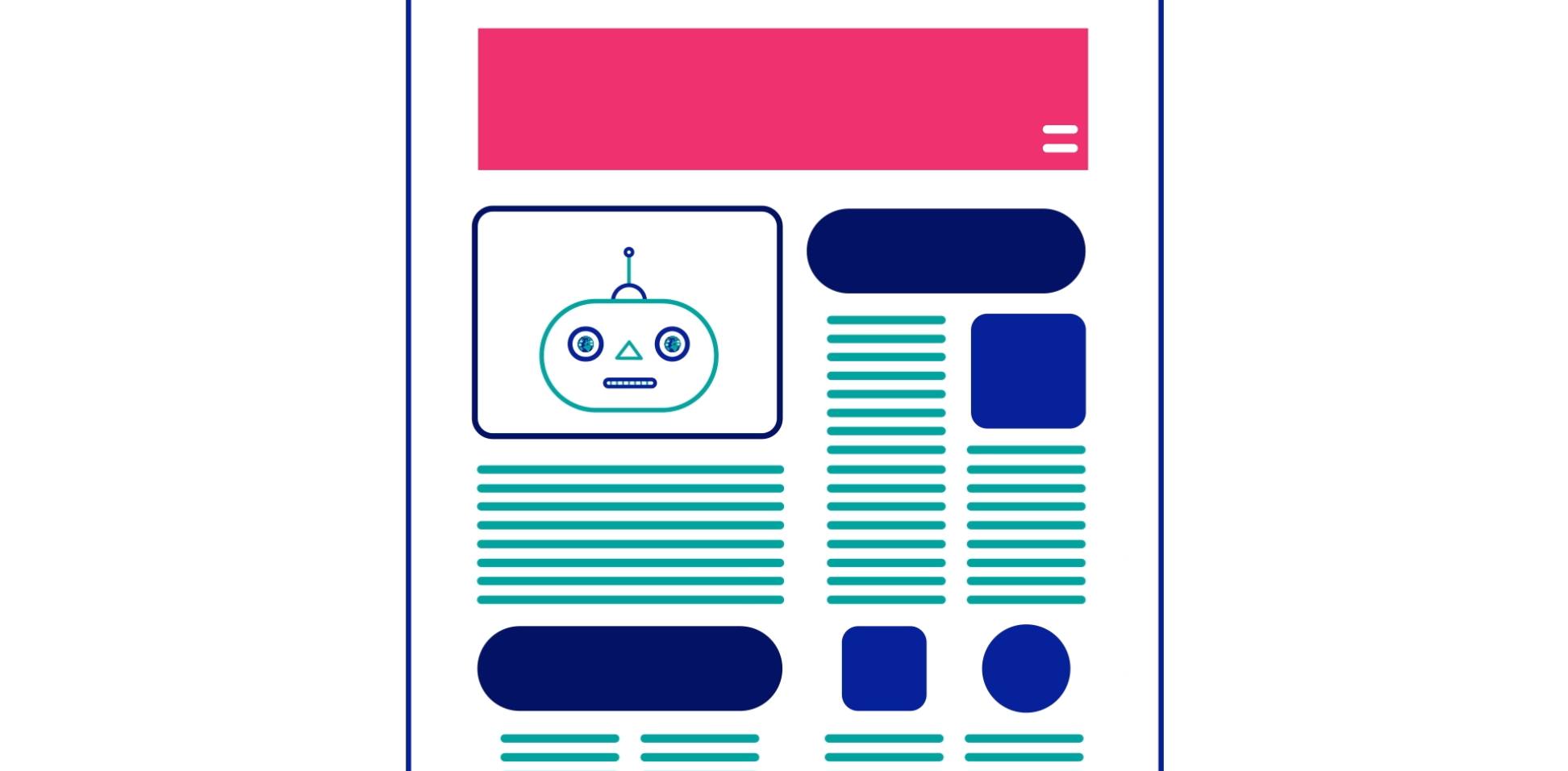Vodafone's new AIQ quiz and research reveal a burgeoning AI skills gap
The quiz was launched to mark Get Online Week - a nationwide initiative from Good Things Foundation aimed at helping people cross the digital divide.
Vodafone has given insight into the nation’s AIQ for the first time through its new quiz, with just 13% of Brits securing high scores (80%+), as well as demonstrating the level of knowledge and confidence needed to thrive in today’s AI-driven society.
The quiz, launched to mark Get Online Week – a nationwide initiative from Good Things Foundation aimed at helping people cross the digital divide – revealed that the average Brit has an AIQ of 57%, some 23% below the optimal 80%+ score, raising concerns about a burgeoning AI skills gap in the UK.
Developed in collaboration with leading AI expert, Dr Nisreen Ameen, from Royal Holloway, University of London, the quiz helps people better assess their confidence and understanding of AI and see how they stack up against the rest of the nation.
Using AI daily
Alongside the quiz, Vodafone’s new research found that 19 million* Brits are now using AI daily, turning to it for everyday tasks including scheduling appointments (21%), help with shopping (20%), and support with work (17%).
The nation is also experimenting with more random requests, asking for help with quiz clues (21%), cleaning tips (16%), and providing positive affirmations (14%).
Generationally, those aged 25-34 are leading the charge when it comes to AI adoption, with 48% stating they use it at least once a day. However, older generations are also quietly defyingexpectations, with more than a quarter (27%) of those over the age of 80 stating they feel confident explaining AI to others, and over one-in-10 (12%) using it every day.
Lin, 76, spoke about how AI has transformed her life, helping her reconnect with family after expanding her digital skills. She said:
“I didn’t know the first thing about computers or AI, but since going to one of Good Things Foundation’s digital inclusion hubs, I’ve learned so much. I’m now using AI to do things I never imagined - writing a story for a loved one and creating a memory book for my sister in Canada, who is too unwell to travel. It’s truly helped me stay connected to the people I love.”
Lack of AI-wareness
Despite the high levels of use, the research uncovered low levels of awareness about how AI works, with more than half of all respondents (56%) believing it can ‘understand’ things in the way humans do, or saying they weren’t sure, when AI simply processes patterns in data. And it was the younger generation who were least likely to know; half (52%) of 25-34-year-olds found themselves in this camp, compared to just 28% of over 55s.
Older generations were also more likely to fact-check AI responses, with 80% of those over the age of 55 confirming they verify everything with a reliable source, compared to 62% of Gen Z (16-28). Additionally, the research revealed that many struggle to identify fake images created by AI with less than half (49%) of those surveyed able to correctly distinguish between an AI-generated image of Big Ben and a photograph.
Commenting on the findings, Dr Nisreen Ameen said:
“It’s great to see that more people areusing AI in their day-to-day lives, but an average AIQ of 57% shows there’s a way to go before people feel fully confident and AI literate. AI can offer great support in day-to-day tasks, but it can be wrong, it needs to be fact-checked, and people need to understand how and why it works, to ensure they are using it ethically and responsibly. In fact, many people are using it without even realising it, which highlights both the promise and the challenge. If we want to build an AI-confident society, we need to make AI education and training as accessible as the technology itself.”
The Great British AI divide
The data went on to reveal how AI confidence and understanding varies across the UK, shaped by differences in income, education, and access to technology.
People in full-time work scored higher than those not currently in employment, with higher earners averaging an AIQ of 66%, compared to 48% for lower incomes, directly correlating to the amount of training received. Nearly a third of those (32%) in higher earning positions have completed AI training at work, versus 9% of those in lower paid jobs, or who aren’t currently employed. Those in further education followed closely behind with an average AIQ of 63%, citing its importance as a study companion in helping to learn new skills or find new information (37%).
Regionally, the picture is mixed, with Birmingham reporting the lowest AIQ scores (53%). In contrast, Sheffield tops the national average (59%), closely followed by London, Edinburgh and Southampton (58%).
Even with AI powering more of daily life than many realise, Vodafone’s research found that over nine million** Brits say they’ve never actively used it, whether due to choice or lack of access. A further 27% admit knowing very little about the tech, and 10% state they know nothing at all.
Experts, such as Dr Nisreen, warn that gaps in basic AI confidence and understanding risk further deepening the UK’s digital divide, particularly affecting the one-in-ten Brits (10%) already worried they’ll be left behind as the technology advances. As AI becomes embedded across sectors, from healthcare and finance to education and customer service, proficiency in AI isn’t just an advantage, but a necessity for professional and social inclusion.
Helen Milner OBE, Chief Executive, Good Things Foundation, said:
“Digital confidence is vital for everyone to participate fully in society – to manage finances, find work, and stay safe online. Vodafone’s new research shows there’s still a long way to go in helping people feel secure exploring new technology. With rapid digital transformation and emerging tech, people are at risk of being left behind. We can’t afford to allow this to happen. The new AIQ quiz is a great way to checkyour understanding of AI this Get Online Week, and for anyone who wants to become more confident in their AI digital skills, I urge them to visit Good Things Foundation’s AI Gateway learning platform.”
Nicki Lyons, Chief Corporate Affairs and Sustainability Officer, VodafoneThree, added:
“AI is transforming every corner of life, but even the most tech-savvy are still grappling with how to use it in the right way. Without widespread access to training and support, we’re at risk of a worsening digital divide, especially for those already facing barriers to getting online. Our everyone.connected campaign, and partnership with Good Things Foundation is all about breaking down those barriers. And this Get Online Week, we’re launching our new AIQ quiz, a simple way to check your AI confidence and understanding, and access tools to help you thrive in an increasingly AI-driven world.”
This Get Online Week, try your hand at the ‘AIQ’ quiz to benchmark your AI knowledge, see how you compare to the national average, and get directed to resources that can help you boost your confidence and skills.
Get help with understanding AI
Do you feel like technology is moving too fast? We're here to make sure you don't get left behind. Learn about AI at your own pace, with our free, interactive learning platform.
Advance your skills with the AI Gateway
AI in action
The top 10 ways the nation uses AI tools:
- Learning new things or find information (38%)
- Navigating or travelling (25%)
- Creative tasks (24%)
- Admin tasks (21%)
- Shopping or making purchases online (20%)
- Doing their job at work (17%)
- Communicating with people (16%)
- Entertainment (16%)
- Health & wellbeing (15%)
- Personal finance (13%)
The top 10 creative ways the nation is using AI:
- Helping with quiz clues (21%)
- Helping diagnose/check a health concern or symptom (18%)
- Choosing next holiday destination (17%)
- Cleaning tips (16%)
- Giving positive affirmations (14%)
- Writing a birthday card (12%)
- Planning social events (12%)
- Writing a witty comeback for a group chat (11%)
- Planning outfit choices (10%)
- As a therapist / for emotional support (9%)
*19,123,455 Brits now use AI daily = 693/2000 * 55,190,347 (16+ UK population figure) = 19,123,455
**Nine million Brits say they’ve never actively used AI = 330/2000 * 55,190,347 = 9,106,407
The AIQ quiz was co-created with guidance from leading AI expert, Dr Nisreen Ameen, Director of the Digital Organisation and Society (DOS) Research Centre, Royal Holloway, University of London.
The AIQ quiz was scored as follows: High scorers (>80%) - 12.75% of respondents fell into this category, mid-high scorers (60-80%) - 36% of respondents fell into this category, mid scorers (40-60%) - 30% of respondents fell into this category and low scorers (<40%) - 21.3% of respondents fell into this category. UK average mean score was 57.01%.


